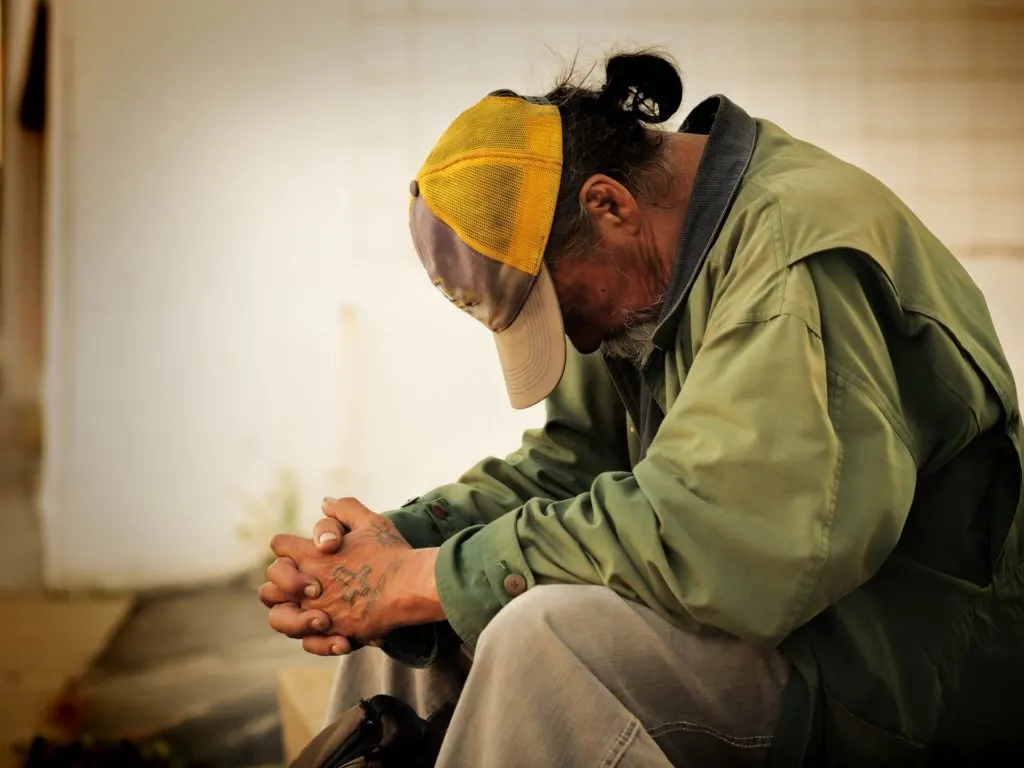Transitional housing has taken on different meanings and forms through the years.
But while people’s definitions of transitional housing differ and its structure varies, we’re here to help clear up any confusion as well as provide some nuance
n this article, we’ll discuss what transitional housing is, transitional housing in the United States, why it exists, and resources to find transitional housing through the U.S.

What is transitional housing?
Though it takes many forms, transitional housing broadly refers to a supportive community that offers temporary housing for different segments of the homeless population or those experiencing a crisis.
Certain types of transitional housing might focus on different populations, such as those experiencing domestic violence, mental health challenges, suffering from drug addiction, or experiencing temporary homelessness. Transitional housing intends to equip people with the tools, structure, and support they need to re-enter permanent housing and be successful in their futures.

Transitional housing timeline
While specific lengths of stays at transitional housing facilities vary, they are intended to be temporary solutions that can help people transition from homelessness or another crisis into permanent housing. Lengths of stays at transitional housing facilities range from a couple of weeks to a few years.

Why does transitional housing exist?
Transitional housing is intended to bridge the gap from a crisis — such as abuse or homelessness — into permanent housing. Typically, transitional housing is more private than other emergency homeless shelters. Transitional housing’s goal is to offer a safe space in which people can process their trauma, work on the issues that led to their homelessness, and build a supportive network that will help them in the future.

Who manages transitional housing?
State governments, city governments, non-profit organizations, churches, and other charitable groups are common operators of transitional housing facilities.
Each facility or network of transitional housing may focus on specific groups such as children, women, LGBTQ people, those suffering from addiction, veterans, immigrants, and more. The United States Department of Housing and Urban Development (HUD) also provides funding for transitional housing programs throughout the U.S. in the effort to prevent or end homelessness.

Transitional housing in the U.S.
Unfortunately, the United States’ rate of homelessness has grown by about 3 percent in the last three years. 2019 marked the third year in a row with an increase in rates of homelessness in the U.S., according to HUD.
But while homelessness is a growing challenge, there are many organizations that can help. TransitionalHousing.org maintains a vast state-by-state database of transitional housing facilities in the U.S. In total, the organization’s database features more than 6,500 transitional housing locations in all 50 states.
Transitional homelessness
There’s a common misconception that most homeless people have been without a home for a long period of time. Most people, in fact, are not chronically homeless but rather going through a crisis that led them to experience transitional homelessness.
Transitional homelessness is regarded by housing experts as the most common form of homelessness. It is usually the result of a major life change, crisis, or catastrophic event.
Those life events may include the loss of a partner, a medical condition, losing a job, a mental health challenge, divorce, domestic or sexual abuse, and more. People experiencing transitional homelessness are more likely to be young, however, older people, children, or families are also common.

How to find transitional housing
Resources for those experiencing transitional homelessness vary from city to city and state to state. But a good first start to research your options is by visiting the National Alliance to End Homelessness and checking out its 4-step process to get help.
The process begins by contacting your area’s Continuum of Care program, which provides a variety of resources that can help people experiencing homelessness of any kind. The Continuum of Care facility should be able to provide you information on access to shelters near you and other vital information. You can find contact information on specific resources in your area with this map.
Types of transitional housing
As we mentioned above, there are many forms of transitional housing. Let’s take a look at some of the most common forms of transitional housing and what you may need to know if you’re looking for such options.
Low-Income families
Transitional housing facilities for families have resources and experienced staff that help children, mothers, and fathers.
In addition to providing housing, social work staff in transitional housing help families to find and enroll children in schools, secure health services, locate employment, and work to find permanent housing. Some transitional housing options for families may provide more private accommodations, apartments, or even small homes.
Recovering addicts
Transitional housing for recovering addicts — sometimes referred to as halfway houses — are typically group settings in which people live while recovering from an addiction.
Facilities for recovering addicts can be a group house, apartments or homes and are usually less intensive than a rehabilitation center that restricts people’s freedom. Oftentimes, folks can come and go as they please so long as they adhere to the facility’s rules. Some homes may entail residents work during the day, abide by a curfew, or be subject to random or periodic drug testing to ensure their sobriety. It’s common that recovering addicts must pay some form of rent, as well as cover their own expenses such as food.
The structure of a recovery home is important and aims to help people overcome their addiction, develop a support network and re-enter permanent housing with the tools to succeed.
Homeless veterans
It’s estimated that about 11 percent of the U.S. homeless population are former military members. HUD estimates that about 40,056 veterans are homeless on any given night. In addition to financial challenges and lack of affordable health care, many displaced or at-risk veterans live with the effects of post-traumatic stress disorder (PTSD) and substance abuse.
If you are a veteran and are at risk of becoming homeless or are already homeless, call the National Call Center for Homeless Veterans at 1-877-424-3838.
Volunteers of America also provides transitional housing for veterans and their families. The organization also helps provide various treatments for veterans that may be battling addiction or other mental health challenges.
Domestic violence
1 in 4 women and 1 in 7 men will experience physical violence by their intimate partner at some point during their lifetimes, according to the U.S. Centers for Disease Control. There are many resources for people experiencing domestic violence, including transitional housing to exit a dangerous or violent situation.
If you’re experiencing domestic violence and are at risk of becoming homeless or are already homeless, contact the National Domestic Violence Hotline at 1-800-799-7233.
In conclusion
There are many forms of transitional housing and many avenues to find what might be the best solution for you or your family. There isn’t a one-size-fits-all option, but once you better understand the resources, you can better find something that can help you transition from a crisis to living a happy life.
We hope through this piece that you learned more about what transitional housing is, homelessness in the United States, why it exists, and the resources to find transitional housing through the U.S.


Gabriel Jurado
Thursday 9th of March 2023
I live in Phoenix Az the place is named The New start house . Owner is Jimmy B he is kicking all of us that are not native out he is only keeping the native ones because their insurance pays more with no question .
Gabriel Jurado
Thursday 9th of March 2023
How can transitional kick you out when you have do everything they asked and require . Access had been paying the clinic but house owner who has LLC doesn't provide anything to help us advance in our mental health .
Catherine Marucci
Thursday 9th of March 2023
Hi Gabriel. Unfortunately, each one has its own policies. It may be worth seeing what other transitional housing is available in your area. Hopefully, you can find one that is more supportive.